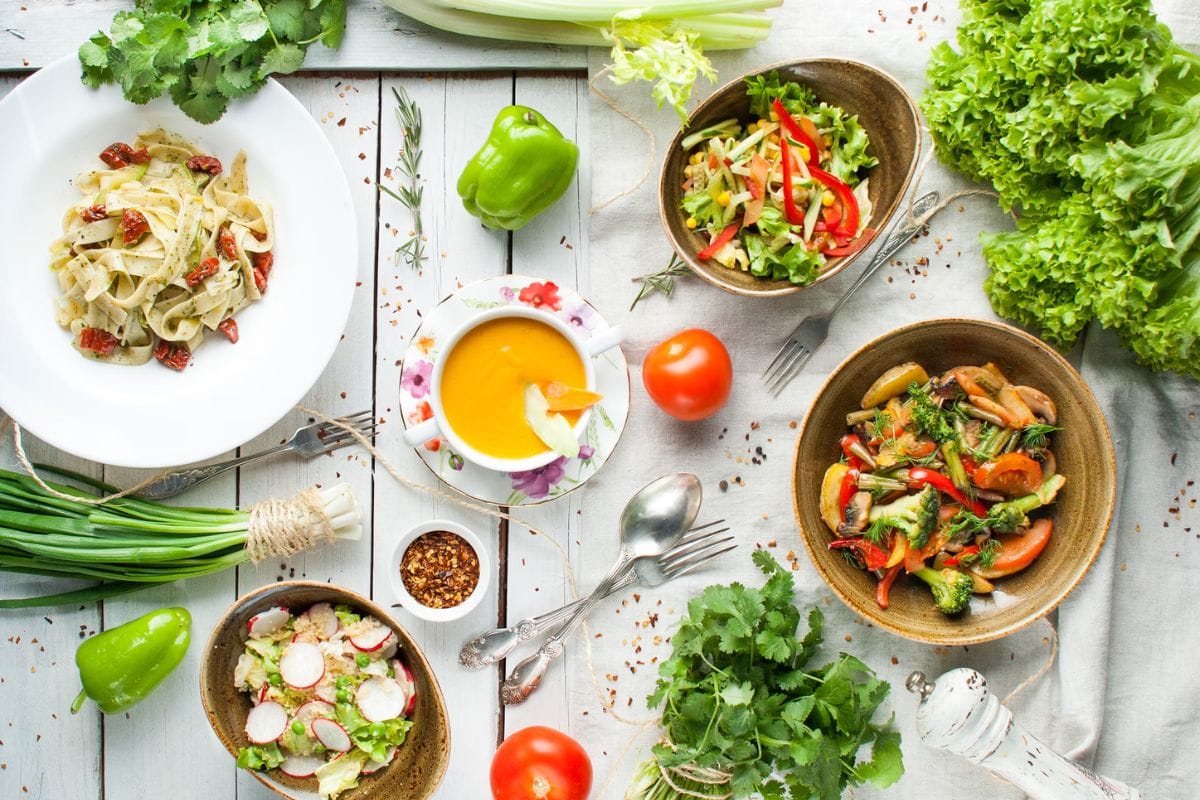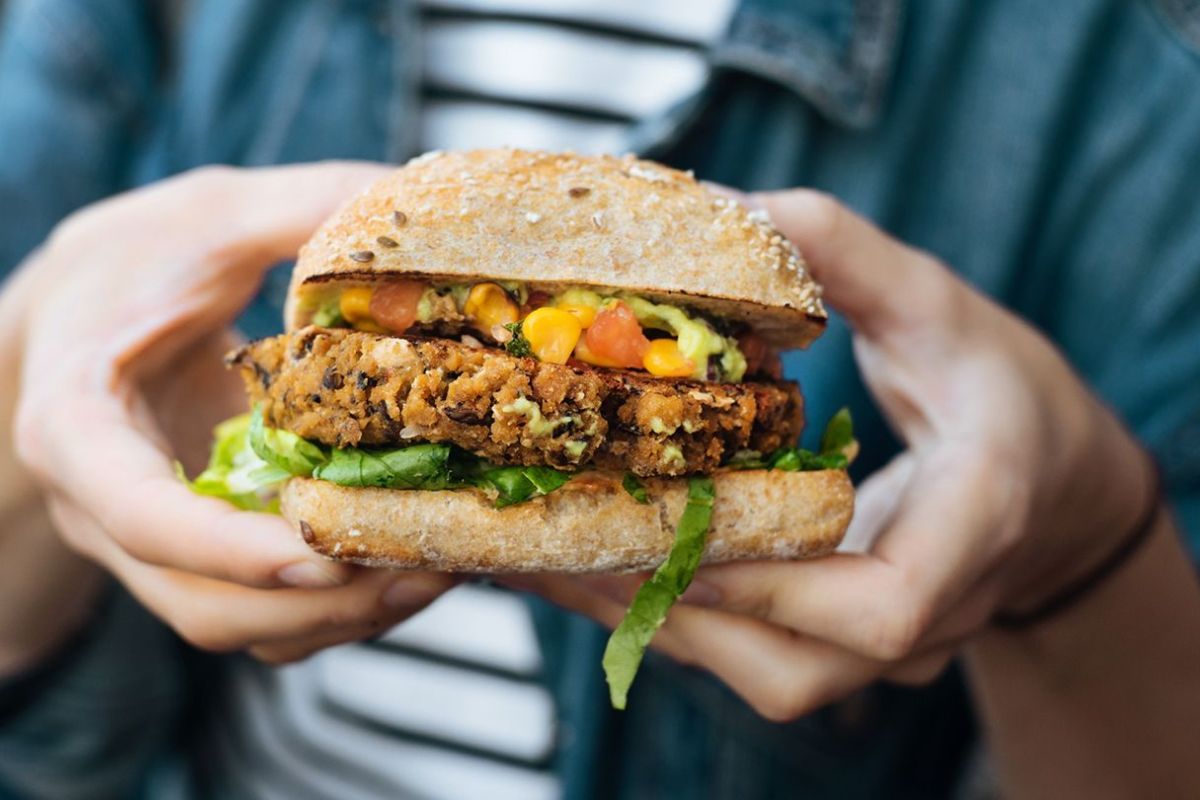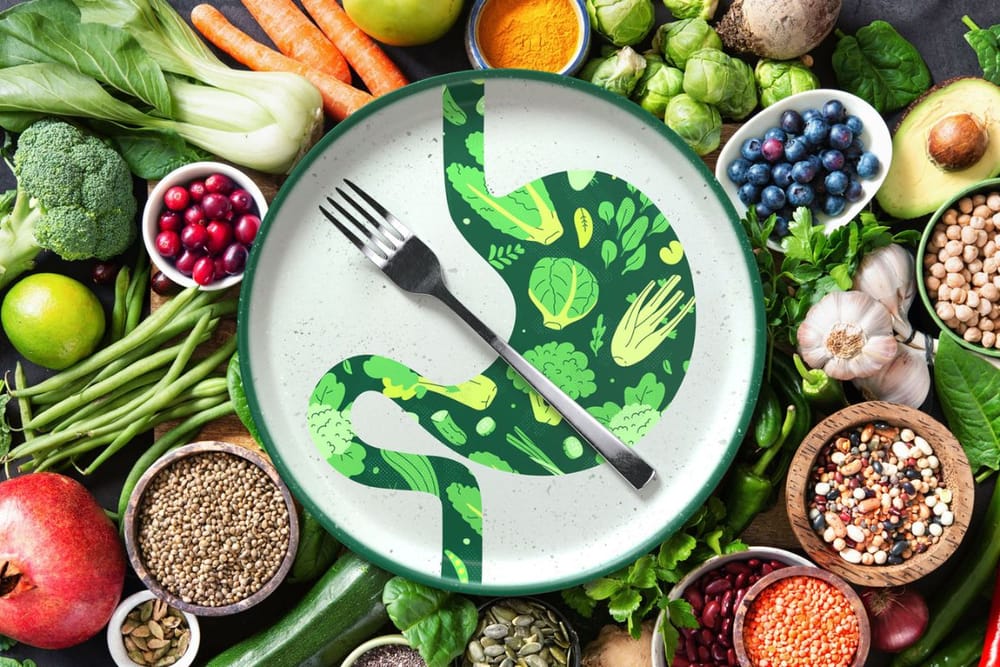Plant-based diets are creating quite the buzz, but with all the hype come plenty of myths. If you’ve ever wondered what all the fuss is about or if a plant-based diet could be right for you, you're not alone. We’re about to dive into some surprising truths and clear up common misconceptions. Get ready to explore the real deal behind plant-based eating and discover how this diet might just be more exciting—and beneficial—than you think.
Why Everyone’s Talking About Plant-Based Diets?
Plant-based diets are increasingly capturing attention, not just for their health benefits but also for their impact on how we approach food. This growing trend is driven by a mix of factors: the desire to explore diverse, flavorful foods, the push towards more sustainable and eco-friendly eating habits, and a shift in cultural attitudes towards wellness and ethical consumption. People are drawn to plant-based diets not only for potential improvements in health and energy levels but also for their role in reducing environmental footprints and supporting animal welfare. As this diet gains popularity, it’s important to understand the broader context and address the myths that often accompany it.
Myth #1: Plant-Based Diets Lack Protein
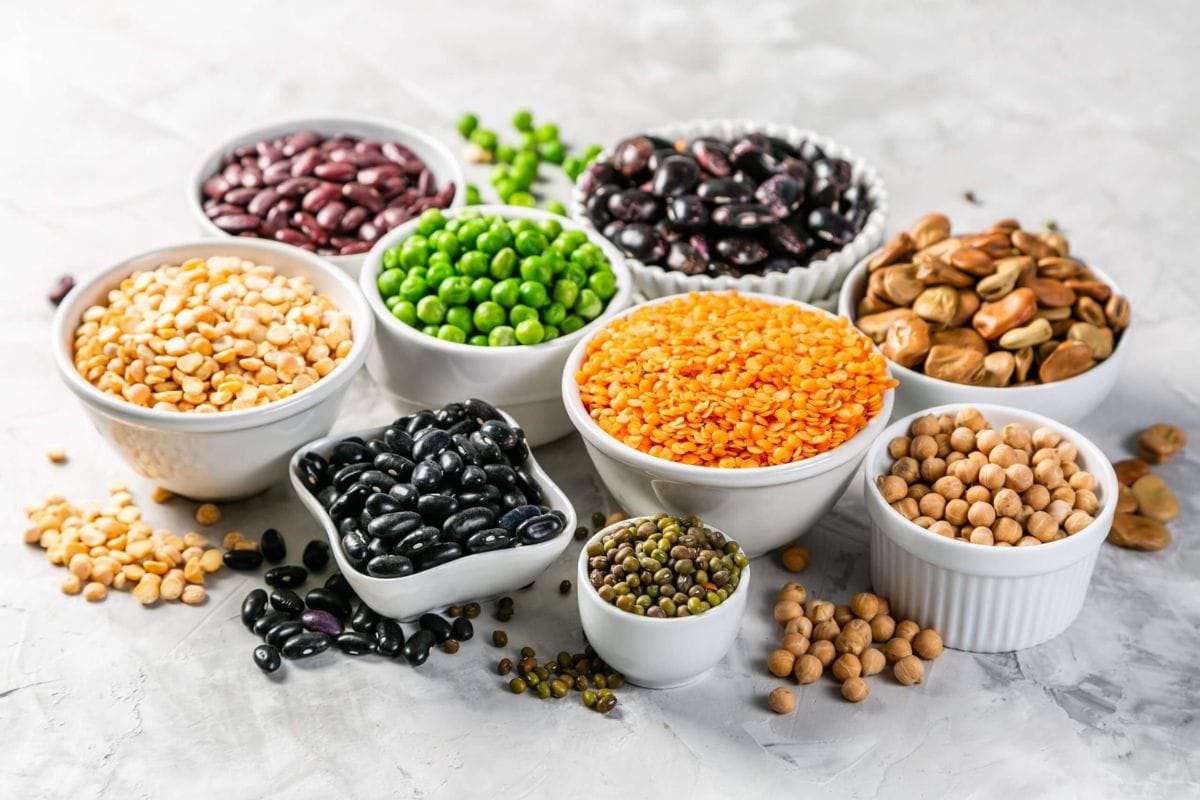
Reality: One of the biggest misconceptions about plant-based diets is that they can’t provide enough protein. The truth is, there are numerous plant-based foods that are not only rich in protein but also offer a variety of other nutrients.
Protein-Rich Plant Foods:
- Lentils: A powerhouse of protein, lentils provide about 18 grams of protein per cup when cooked. They’re versatile and great in soups, stews, or salads.
- Chickpeas: These little legumes offer around 15 grams of protein per cup. They’re fantastic in dishes like hummus, curries, and roasted snacks.
- Quinoa: Unlike most plant-based sources, quinoa is a complete protein, meaning it contains all nine essential amino acids. It provides around 8 grams of protein per cup when cooked.
- Tofu and Tempeh: Both made from soybeans, tofu provides about 10 grams of protein per half-cup, and tempeh offers around 15 grams per half-cup. They’re excellent for stir-fries, sandwiches, and even grilling.
Comparing Protein Sources: While animal products like chicken and beef are commonly known for their protein content, plant-based options can be just as robust. For instance, a 3-ounce serving of chicken breast contains about 26 grams of protein, whereas a cup of cooked lentils provides around 18 grams. While plant-based options might not always match the protein content of meat per serving, incorporating a variety of protein-rich plants can easily meet your daily protein needs.
For example, pairing beans with rice or adding nuts to a salad can enhance your protein profile. Additionally, incorporating protein-rich snacks like edamame or protein bars can help you stay on track.
By diversifying your plant-based meals and understanding the wealth of protein options available, you can easily meet your protein needs without relying on animal products.
Myth #2: Plant-Based Diets Are Expensive

Reality: Plant-based diets are often perceived as being more expensive due to the high intake of fruits and vegetables. However, switching to a plant-based menu doesn’t always lead to higher costs. A study conducted in Dubai revealed that plant-based meal plans could potentially save up to AED 2,000 a year compared to diets that include more meat.
Affordable Plant-Based Staples in the UAE:
- Beans and Lentils: These are excellent sources of protein and fiber, offering substantial nutritional value at a low cost. They’re readily available in bulk and can be incorporated into numerous dishes, providing both economy and variety.
- Rice and Pasta: Common staples that are widely found at reasonable prices in UAE supermarkets. They serve as the foundation for many meals and are economical choices for a plant-based diet.
- Seasonal Vegetables: Opting for vegetables that are in season helps to keep prices down while ensuring freshness. Vegetables like cucumbers and bell peppers are often more affordable when purchased from local markets.
- Oats: Oats are a cost-effective option for both breakfast and snacks, delivering essential nutrients and fiber. They can be used in various dishes, including porridges and baked goods, making them a practical addition to your diet.
Comparing Costs: While plant-based diets can sometimes be perceived as costly, particularly if you purchase more packaged plant-based products or processed meat substitutes, focusing on whole foods can help manage expenses. For example, beans and legumes are significantly cheaper than meat, making them a cost-effective choice for a balanced diet.
Myth #3: Plant-Based Diets Lack Essential Nutrients
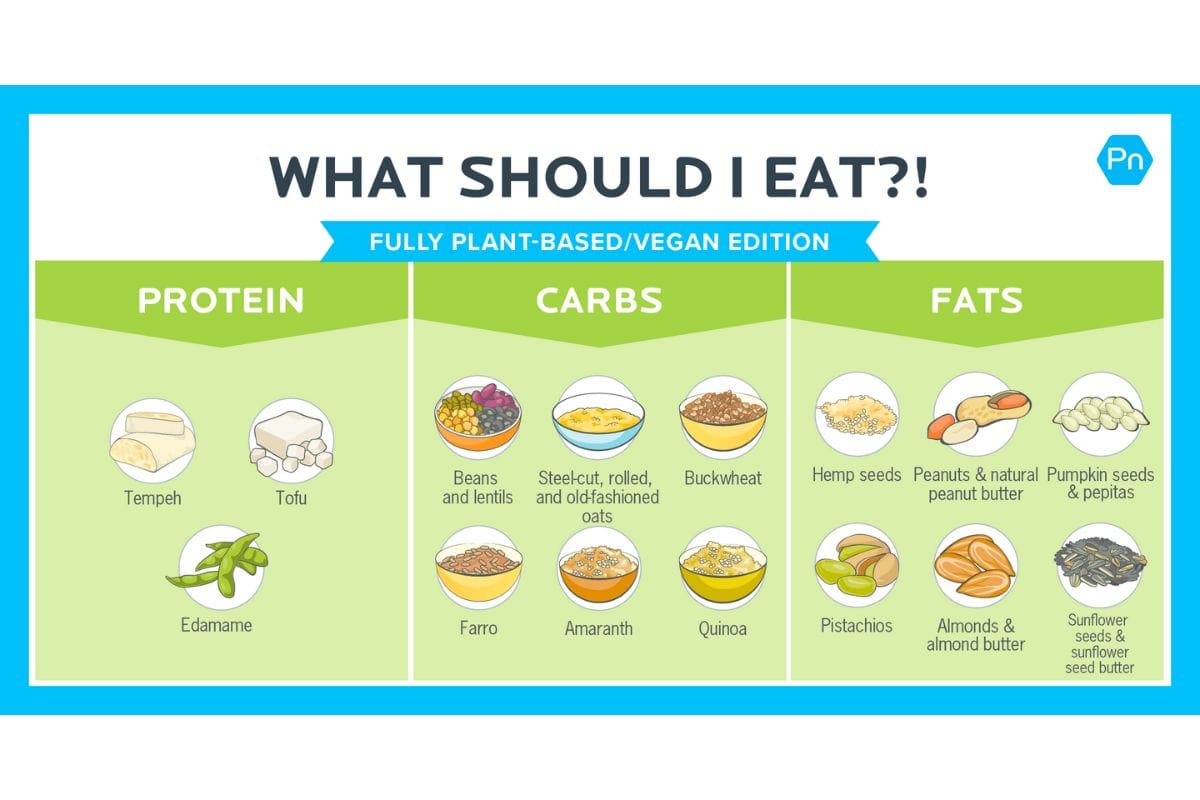
Reality: One common concern about plant-based diets is that they may not provide all the essential nutrients needed for good health. However, with proper planning, a plant-based diet can offer all the necessary nutrients for a balanced and healthy lifestyle.
Essential Nutrients and How to Get Them:
- Vitamin B12: This vitamin is crucial for nerve function and the production of red blood cells. It’s primarily found in animal products, but plant-based individuals can obtain it through fortified foods or supplements.
- Iron: Plant-based iron is non-heme iron, which is less easily absorbed than heme iron from animal sources. However, consuming iron-rich foods like lentils, spinach, and chickpeas along with vitamin C-rich foods (such as oranges or bell peppers) can enhance absorption.
- Calcium: Important for bone health, calcium can be found in fortified plant milks, and leafy greens like kale, and almonds. Choosing fortified options ensures you get enough calcium.
- Omega-3 Fatty Acids: Essential for heart health, omega-3s can be sourced from flaxseeds, chia seeds, and walnuts. Algal oil supplements are also available for those who need a direct source of DHA and EPA.
Balanced Plant-Based Diet Tips:
- Including a variety of plant-based foods in your diet helps ensure you receive a broad spectrum of nutrients. Incorporate different grains, legumes, nuts, and vegetables.
- Look for fortified plant-based products, such as plant milk and cereals, to help meet nutritional needs.
- Consider supplements for nutrients that are harder to obtain from a plant-based diet, like Vitamin B12, if needed.
Myth #4: Plant-Based Diets Are Difficult to Follow
Reality: Some people believe that adopting a plant-based diet is challenging or inconvenient, but with the right approach, it can be quite manageable and enjoyable.
Overcoming Common Challenges:
- Meal Planning and Preparation: Many assume plant-based diets require elaborate meal prep. In reality, there are plenty of simple and quick recipes that fit a plant-based lifestyle. For instance, dishes like stir-fries, salads, and grain bowls can be prepared with minimal effort and time.
- Eating Out: Although dining out on a plant-based diet might seem tricky, many restaurants in Dubai now offer plant-based options. Additionally, more eateries are becoming accommodating with customizable menu items. Find the best vegan restaurants in Dubai.
- Finding Ingredients: While some specialized ingredients may be less common, basic plant-based staples like beans, grains, and vegetables are widely available in UAE supermarkets. Many international and local stores stock plant-based products, making them easy to find. Here is where you can find vegan food ingredients in Dubai.
- Social Situations: Navigating social events can be a concern, but it’s often possible to find or request plant-based options. Communicating dietary preferences in advance can help ensure you have suitable choices at gatherings.
Practical Tips for a Smooth Transition:
- Transitioning to a plant-based diet doesn’t have to be abrupt. Begin by incorporating more plant-based meals into your routine and gradually reducing animal products.
- Keep your pantry stocked with versatile plant-based staples, such as canned beans, frozen vegetables, and whole grains.
- Engage with online communities or local groups for plant-based eaters to share recipes, tips, and encouragement.
Myth #5: Plant-Based Diets Are Only for Vegans
Reality: Many people think that plant-based diets are synonymous with veganism, but that’s not necessarily the case. Plant-based eating can be adapted to fit various dietary preferences and lifestyles.
Understanding Plant-Based Eating:
- Flexibility: A plant-based diet emphasizes plant foods while allowing for varying levels of animal product consumption. Some individuals follow a predominantly plant-based diet but still include small amounts of animal products. This is often referred to as a “flexitarian” approach.
- Health and Ethical Choices: While veganism is a specific lifestyle choice that excludes all animal products for ethical, environmental, or health reasons, a plant-based diet primarily focuses on increasing plant food intake for health benefits. It doesn’t necessarily require a complete elimination of animal products.
- Cultural and Personal Adaptations: People from various cultures and personal backgrounds can adopt a plant-based approach in ways that suit their needs. This flexibility allows individuals to incorporate plant-based principles into their existing diets without strict adherence to veganism.
- Different Levels of Commitment: Whether someone is aiming to reduce meat consumption for health reasons, environmental concerns, or simply to try something new, a plant-based diet can be customized. It can involve anything from eating more vegetables and fruits to reducing animal products gradually.
Myth #6: Plant-Based Diets Lack Flavor and Variety
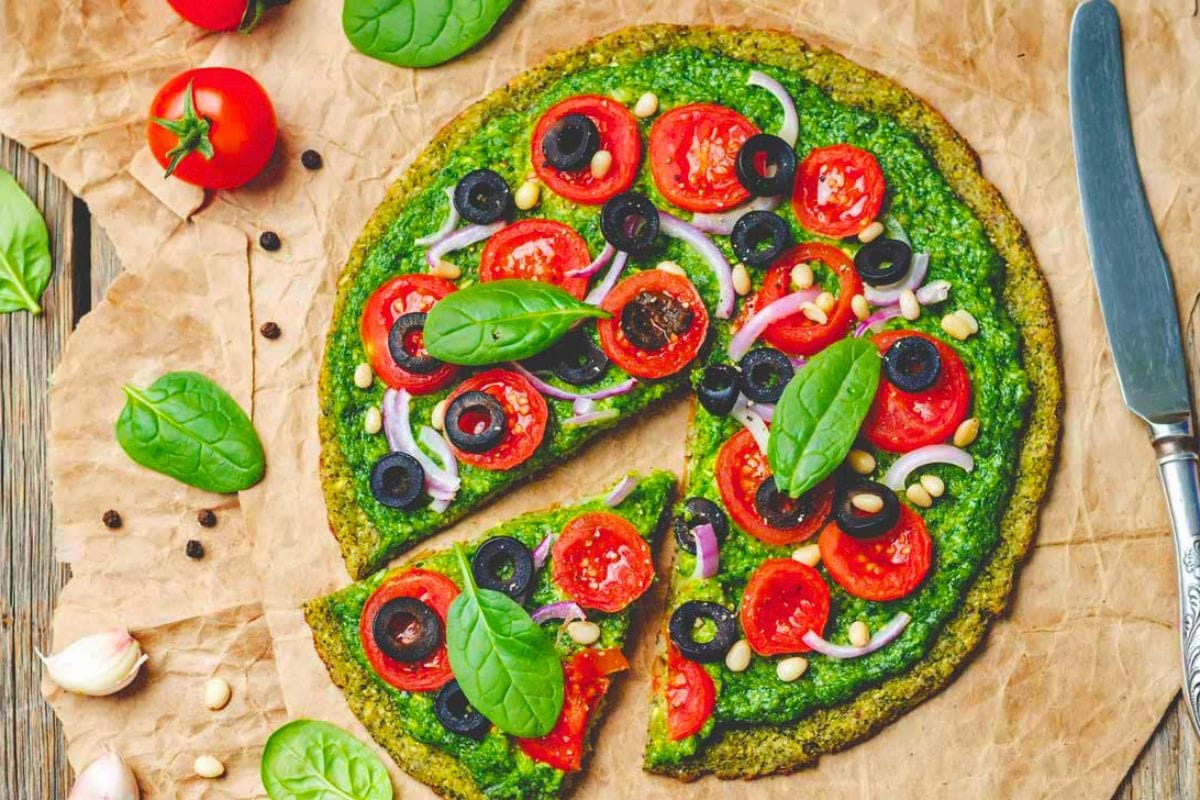

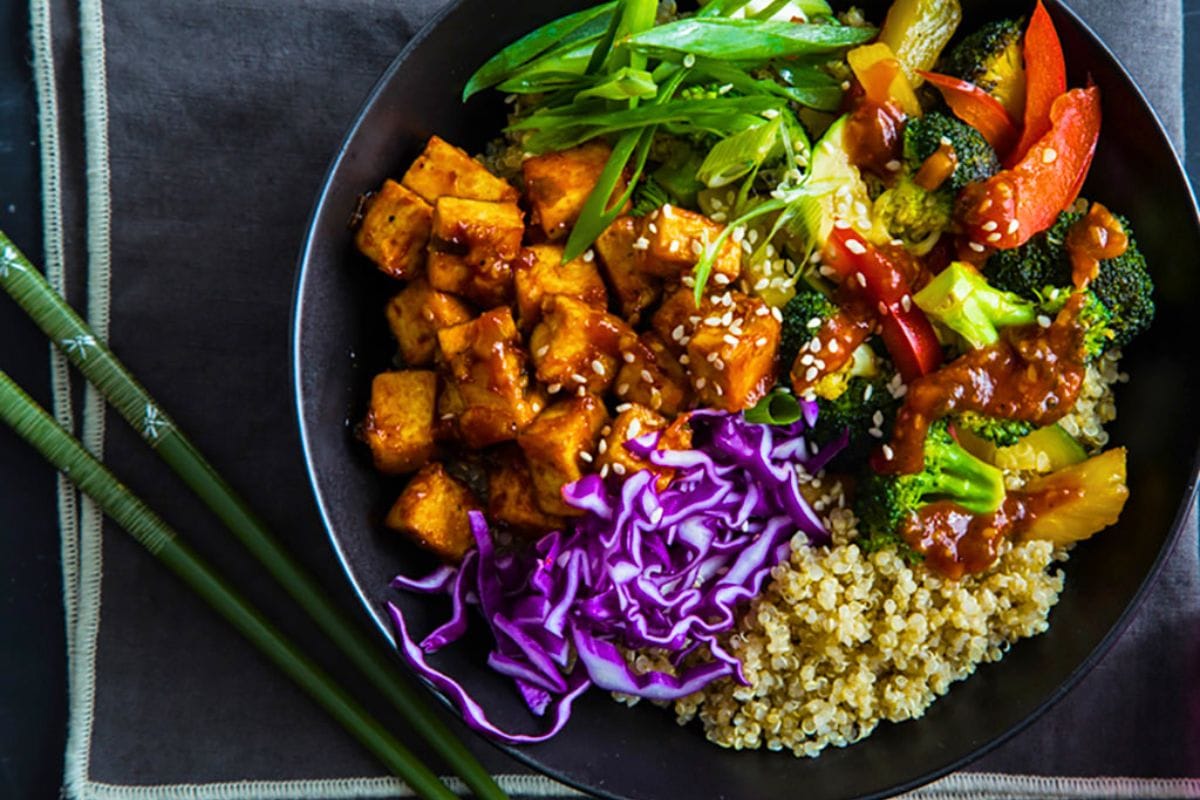

Reality: One common misconception is that plant-based diets are bland and monotonous. In truth, plant-based eating offers an incredible range of flavors and culinary diversity.
Exploring Flavorful Plant-Based Options:
- Spices and Herbs: A wide variety of spices and herbs can elevate plant-based dishes, adding depth and complexity. Ingredients like cumin, coriander, turmeric, and fresh basil can transform simple vegetables and grains into flavorful meals.
- International Cuisine: Many global cuisines naturally include plant-based options that are both flavorful and diverse. For example, Indian, Thai, and Middle Eastern cuisines offer a wealth of plant-based dishes rich in spices, herbs, and unique flavor combinations.
- Creative Cooking Techniques: Techniques such as roasting, grilling, and sautéing can enhance the taste and texture of plant-based foods. For instance, roasted vegetables develop a caramelized sweetness, and grilled tofu takes on a smoky flavor.
- Plant-Based Substitutes: Innovative plant-based products, such as dairy-free cheeses, plant-based burgers, and creamy sauces made from nuts and seeds, can mimic the flavors and textures of traditional animal-based foods.
Enhancing Flavor and Variety:
- Explore a range of plant-based recipes and cooking styles to discover new flavors and textures. Here are some tasty vegan recipes you can try at home.
- Combine different plant-based ingredients to create diverse and satisfying meals. For example, mixing grains with beans and vegetables can lead to a variety of tasty dishes.
- Incorporate plant-based condiments and sauces to add extra flavor. Options like salsa, soy sauce, and tahini can enhance the taste of your meals.
Myth #7: Plant-Based Diets Are Difficult to Adapt for Athletes and Active Individuals
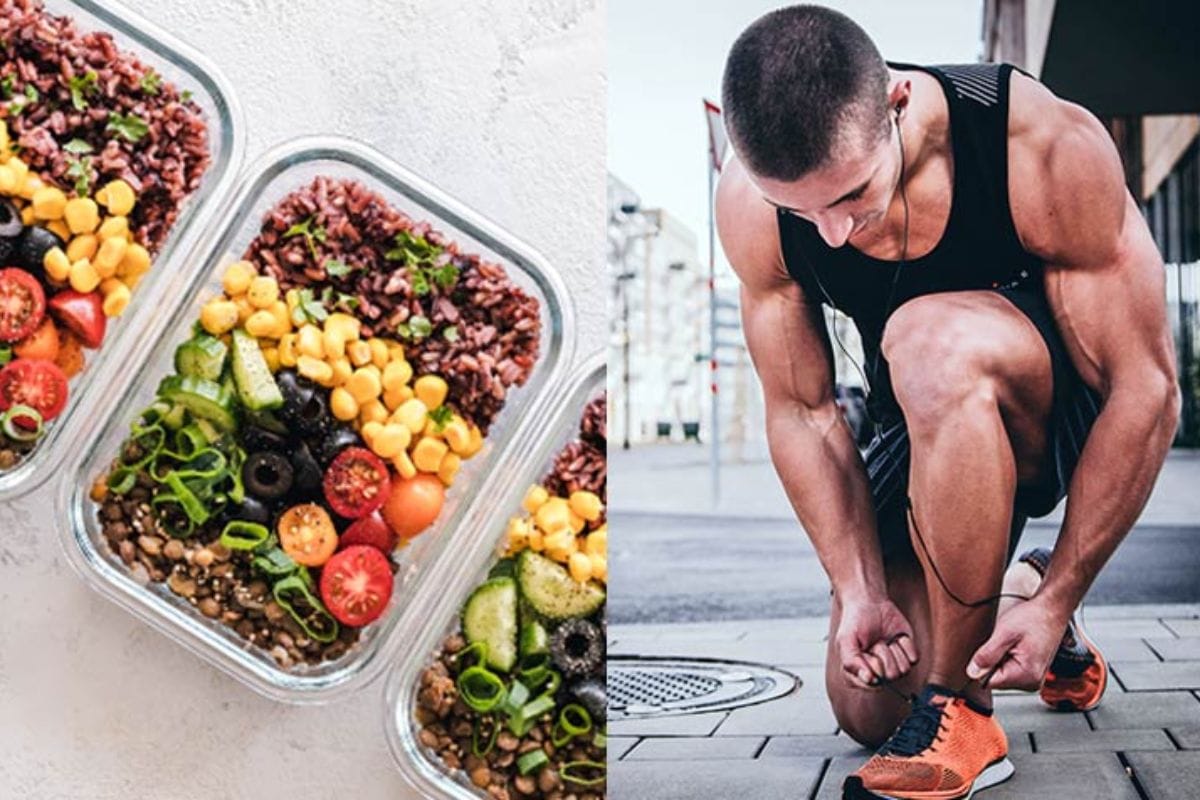
Reality: Many believe that plant-based diets can’t support athletic performance or an active lifestyle. However, with proper planning and the right resources, a plant-based diet can be highly effective for athletes.
Plant-Based Eating for Active Lifestyles:
- Adequate Energy Levels: Plant-based foods provide ample energy for workouts. Carbohydrate-rich options like fruits, whole grains, and legumes are excellent for sustained energy.
- Muscle Recovery: Plant-based proteins, such as those from beans, lentils, and quinoa, support muscle repair. Additionally, plant-based diets can offer anti-inflammatory benefits from antioxidants found in fruits and vegetables, aiding in recovery.
- Hydration and Electrolytes: Many plant-based foods, like leafy greens, bananas, and avocados, are rich in essential electrolytes, helping maintain hydration and support performance.
- Vegan Protein Powders: For those looking to boost their protein intake, vegan protein powders are an excellent option. These include Pea Protein, Rice Protein, Hemp Protein, Soy Protein, and Blended Proteins
- Customized Nutrition Plans: Athletes can work with nutritionists to design plant-based meal plans tailored to their needs, ensuring they get the right balance of macronutrients and micronutrients for their training goals.
Tips for Athletes Adopting a Plant-Based Diet:
- Ensure you’re consuming a variety of plant-based protein sources, including protein powders if needed.
- Incorporate a wide range of fruits, vegetables, grains, and legumes to meet all nutritional needs.
- Drink plenty of water and include hydrating foods in your diet.
We’ve cleared some common myths about plant-based diets, showing that they’re not just feasible but can also be quite beneficial. Transitioning to a plant-based diet might seem challenging at first, but it’s a practical choice for anyone looking to enhance their health, manage their budget, or explore new food options.
As you consider making the switch, keep in mind that the plant-based lifestyle is about balance and discovery. You might be surprised at how satisfying and diverse your meals can be. Give it a try and see how it works for you. You might just find that plant-based eating fits seamlessly into your life.
Also Read:

